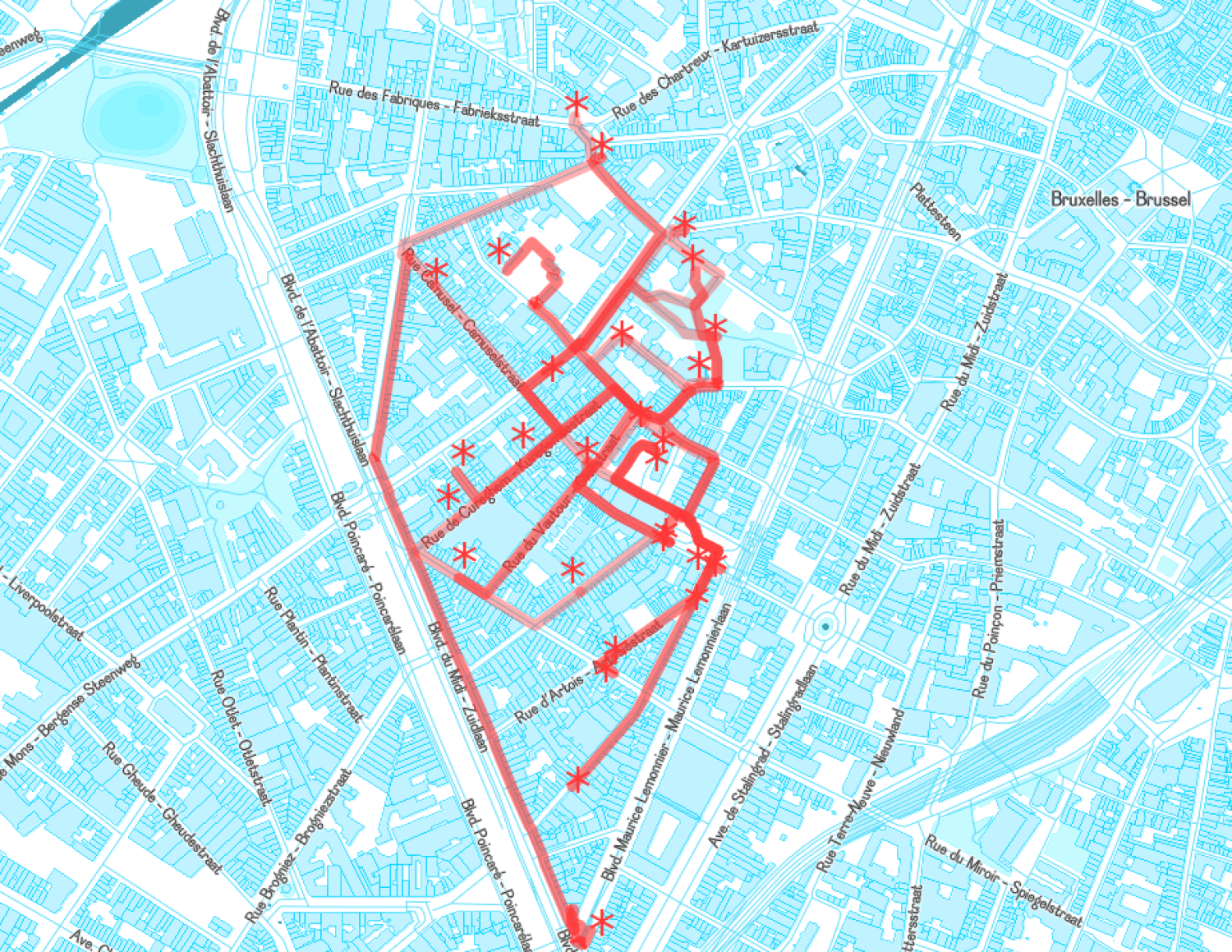Pibliotheque workshop at Varia, Rotterdam
Two days workshop at Varia (Gouwstraat 3, Rotterdam)
those.tools is a software development and design studio for research, editorial and publishing practices in the arts and social sciences. We develop free and open source tools for writing, archiving, mapping, designing and publishing research.
We activate and adapt each tool to the context of every project we collaborate on. Wether for self-initiated projects or commissioned work, our aim is to explore new ways of doing things, recognizing the epistemological function of tools with a strong focus on collective creative processes.
These processes can produce a variety of objects: books, web platforms, sound installations… They may also, we hope, produce new ideas, new perspectives, new relations.
Open to collaborations, those.tools welcomes fellow designers, developpers, artists with an interest in these topics.
Chemins a data archiving and mapping tool. Built on top of the Processwire CMS, it enables one or more users to build up a database of documents, specifying object typologies and relationships, while graphically visualizing these documents within a map. The resulting database can be used to produce a website, with each node and link in the graph constituting a web page.
Marginalia a writing tool for creating relationships between several columns of text. It can be used to write linear text containing calls for notes, as well as multi-voice dialogues. It includes an export module for designing a printed publication from the encoded content.
Pibliotheque a files sharing system between computers connected to a local network, designed for collective practices of documents sharing and dissemination.
Two days workshop at Varia (Gouwstraat 3, Rotterdam)
Website and publishing platform for the Commodity Frontiers initiative.
Design and development of the website bna-bbot.be/soundmap.
The BNA-BBOT soundmap - bna-bbot.be/soundmap - is a collaborative website where visitors can listen and contribute to a database of geolocated sounds, recorded in Brussels. The previous version of the website was made in 2011 by La Villa Hermosa. Since then more than 800 sounds have been uploaded, from street protests to birds, fountains, machines, trafic, road works, bells.
The old website was running on a custom CMS that was slowly becoming obsolete and the public interface was based on Google Maps, with an extensive use of its API to find coordinates based on an address (geocoding) or to find an address based on its coordinates (reverse-geocoding), to find routes between two points (directions) and to display and draw on the map.
The first thing we did was to integrate all the soundmap data to the BNA-BBOT database that contains already all the testimonies they have been archiving since 2000 (if you do not know their work : please go to bna-bbot.be/en/database/ where you will have access to more than 19000 testimonies from people working / living in Brussels), with a new data structure.
Then, we rebuilt entirely the public interface with an important shift : it doesn't need any external API to work anymore. No more Google Maps API for the data, the tiles, the directions, the geocoding; no MapBox, MapTiler, Radar,... everything is hosted and served on the BNA-BBOT server, with OSM, TileServer, Nominatim, OSRM and MapLibre GL JS.
What it means for BNA-BBOT is that there is no dependencies to external servers anymore for the soundmap to work and they also have a tool that could be useful for other maps of Brussels.
We developped several new ways of browsing the sounds on the map. There is now three types of filters; by years, by people, by keyword, and a free search field. Additionnaly, there is a new way of "curating the sounds" for the BNA-BBOT team: they can now create what we call "walks", which are sounds selections around a topic. They can be viewed as geolocated playlists, with paths drawn on the map between each sound.

Database architecture for the a/r initiative
First waves of Maghrebi and Black struggles in Brussels, and beyond.
Map of the connections between the individual research projects in the context of the exhibition "Branching Streams. Sketches of Kinship" by the international research team Reconnecting 'objects' (reconnecting.art) at Théodore Monod African Art Museum, Dakar. The map was designed and hand drawn by Ayoh Kré Duchâtelet and Lionel Maes.
A website for the research project Simba Mbili by Sam Hopkins and Marian Nur Goni.
Introduction to the writing tool Marginalia in the context of the "Networked Practice" seminar organized by Sam Hopkins at the Academy of Media Arts in Cologne.
A database for the archival practice of Peliskan, an association dedicated to the rescuing of Super 8 Films, notably in connection with the "festival Super 8" in Belgium